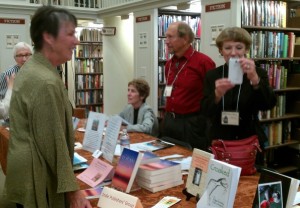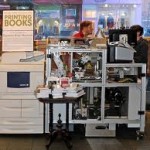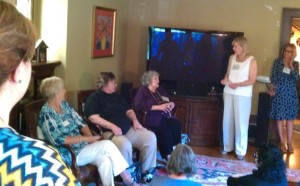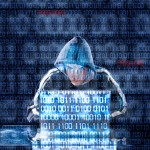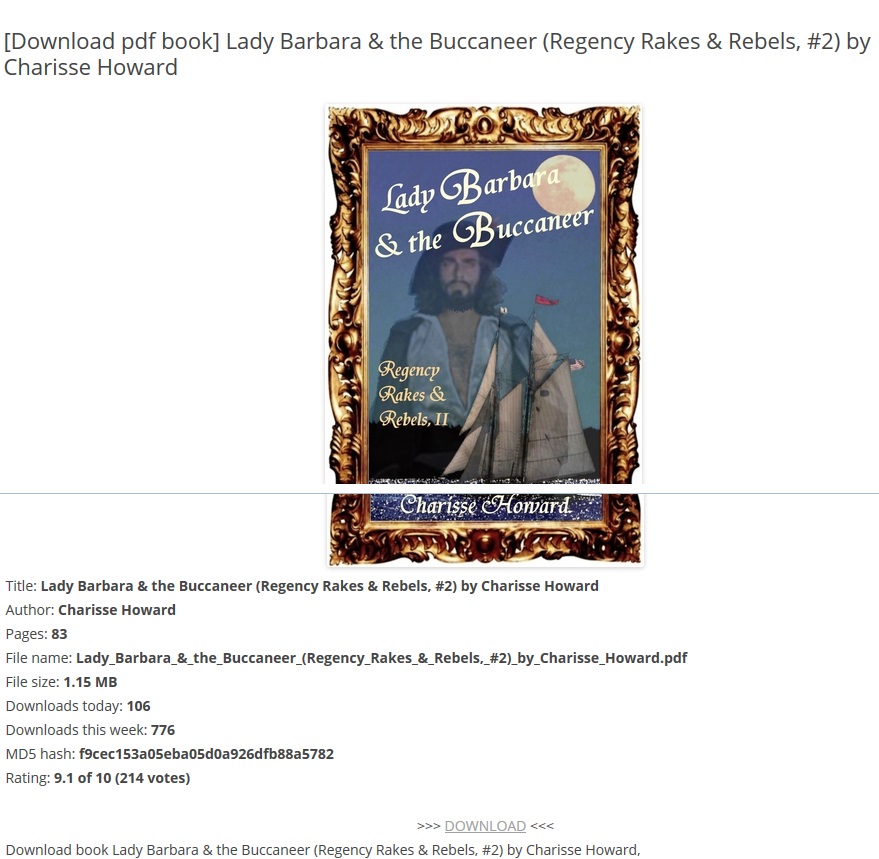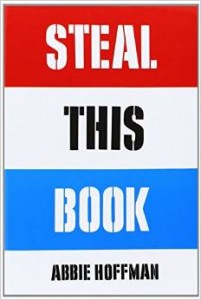It is a truth universally acknowledged that the literary world is in flux. Book publishing is the 21st-century Wild West. It’s the Gold Rush. Meaning, fortunes are being made and lost, and since nobody’s sure where the next big thing will come from, many ambitious Argonauts are looking for their payoff in the crystal-ball market.

The first question I would ask before making any predictions is, Why do we have books? What do we want from them? Is a story printed on paper pages more powerful in some way than one that appears and disappears on a screen between phone calls? Is a book simply a content delivery system, or is the medium part of the message?
These are bigger questions than I can analyze here and now, but some intriguing clues have emerged. Data show the classic book form is thriving. Reliable figures are sparse, but we know the self-publishing boom has exploded the number of books produced per year, adding around 400,000 to the million or so total in 2013. Traditional publishers’ output continues to rise, although the heavy competition has kept earnings flat. Print book sales remain vigorous; and while e-book sales are no longer skyrocketing, they’re strong and rising.
 In June 2012, when I published my multimedia e-book Edward Gorey On Stage, it was pioneering to include hyperlinks in the text and photo captions to take readers to film clips, related websites, music, and more. So many startups were creating interactive book technology that I half expected a paradigm shift to a hybrid between an e-book and a video game. We’re seeing some of that, in children’s books and textbooks and some other niches, but on the whole it hasn’t happened. To my surprise, several reviewers of Edward Gorey On Stage wished it were available in old-fashioned print on paper. So I asked myself how I could do that, and now there is a full-color multimedia print version as well as an e-book. Still, it’s not the links people respond to as much as the content. Readers want information, and they want a story.
In June 2012, when I published my multimedia e-book Edward Gorey On Stage, it was pioneering to include hyperlinks in the text and photo captions to take readers to film clips, related websites, music, and more. So many startups were creating interactive book technology that I half expected a paradigm shift to a hybrid between an e-book and a video game. We’re seeing some of that, in children’s books and textbooks and some other niches, but on the whole it hasn’t happened. To my surprise, several reviewers of Edward Gorey On Stage wished it were available in old-fashioned print on paper. So I asked myself how I could do that, and now there is a full-color multimedia print version as well as an e-book. Still, it’s not the links people respond to as much as the content. Readers want information, and they want a story.
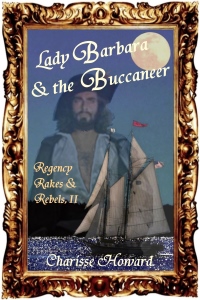 So what I think we can look forward to, for now, is most adult fiction and nonfiction published in three formats: print, e-book, and audiobook. Our multitasking zeitgeist means that a lot of people read while they’re doing something else, such as commuting, exercise, or housework. The structure of the story won’t change much, because we humans exist in time, so every experience has a de facto beginning, middle, and end.
So what I think we can look forward to, for now, is most adult fiction and nonfiction published in three formats: print, e-book, and audiobook. Our multitasking zeitgeist means that a lot of people read while they’re doing something else, such as commuting, exercise, or housework. The structure of the story won’t change much, because we humans exist in time, so every experience has a de facto beginning, middle, and end.  And as Joseph Campbell has pointed out, the same basic story lines show up in all different cultures, because every community struggling with this vast and chaotic world wants to know what the heck is going on. Birth and death. Love and work. War and heroism.
And as Joseph Campbell has pointed out, the same basic story lines show up in all different cultures, because every community struggling with this vast and chaotic world wants to know what the heck is going on. Birth and death. Love and work. War and heroism.
Where do the bells and whistles come in? Peter Thiel, a techno mogul who cofounded PayPal, has a new book out called Zero to One: Notes on Startups, or How to Build the Future. In his opinion, tech and the tech industry have a better shot than money at bringing about change in the world. That impact includes books.
Right now we’re seeing a tech crossover less in book format than in book marketing. In a short piece that just came out September 24 in Digital Book World, Rich Bellis notes that media tie-ins power half of this week’s best-selling e-books.  This isn’t a new trend, but it’s the highest proportion so far of digital best-sellers linked with movies or TV shows. With the film version of Gillian Flynn’s Gone Girl hitting cinemas on October 3, the e-book version is back at #1. “Eight other titles within the top-25 (The Maze Runner, three titles in the Outlander series, If I Stay, The Fault in Our Stars, This Is Where I Leave You and Dark Places) have current or upcoming film or TV series tie-ins.”
This isn’t a new trend, but it’s the highest proportion so far of digital best-sellers linked with movies or TV shows. With the film version of Gillian Flynn’s Gone Girl hitting cinemas on October 3, the e-book version is back at #1. “Eight other titles within the top-25 (The Maze Runner, three titles in the Outlander series, If I Stay, The Fault in Our Stars, This Is Where I Leave You and Dark Places) have current or upcoming film or TV series tie-ins.”
What does this mean for books? If you’re in movies or TV, books have become an increasingly valuable slush pile. The Outlander series running on Starz is based on a book series by Diana Gabaldon that dates back to 1991. Most of the popular British mystery series on American public television began as books, by authors from 21st-century Ann Cleeves back to Agatha Christie almost a century ago. All this exposure boosts book sales, and we can hope demand, at least for genre books, along with the prospects for authors. On the other hand, Bellis observes, “It can sometimes feel as though the ebooks are ‘tie-ins’ to the TV shows and movies, and not the other way around.” The book may be the seed, but its cover and PR are more likely to feature the star than the writer.
Meanwhile, the consumer gets to have his or her cake and eat it, too. Because our minds process information differently in different formats, there’s a separation between words we read on a page, words we listen to, and moving images. We can enjoy all three, or even two at once; Kindle’s Whispersync touts itself as a way to read the e-book while you’re listening to the audiobook. Still, the external picture supplied by actors on a screen isn’t the same as the internal picture that erupts like a genie from a magic lamp when we read. Whether you’re hooked on the heft of a paper book in your hands, or addicted to the convenience of ebooks or audiobooks, a tale told by a storyteller remains a unique and irreplaceable pleasure.
 (Note: I’ll be presenting a shorter version of these comments at Booktoberfest 2014; see previous blog for time and place.)
(Note: I’ll be presenting a shorter version of these comments at Booktoberfest 2014; see previous blog for time and place.)


